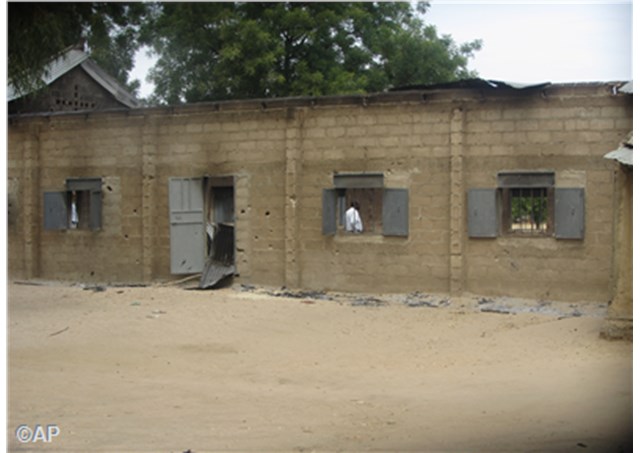
There is no option to Inter-religious Dialogue

The Director of Mission and Dialogue at the Catholic Secretariat of Nigeria, Fr. Cornelius Afebu Omonokhua has commended the new Gambian President, Adama Barrow for reversing an Executive Order signed by his predecessor Yahya Jammeh who, in 2015, declared Gambia an Islamic republic.
In his first news conference on 26 January this year, President Barrow announced that Gambia would no longer be called the Islamic Republic as signed into law by Jammeh. President Barrow said that although the Gambia has 90 percent Muslim population, he wanted the country to be a secular republic. This is in a bid to promote and restore peace and unity among Muslims and Christians.
Fr. Cornelius Omonokhua who was until recently a member of the Pontifical Council for Inter-religious Dialogue's special Commission for Religious Relations with Muslims (CRRM) made these remarks in an article titled, “Religious relations with Muslims.” The article was released to the public after the Pontifical Council for Inter-religious Dialogue, headed by Jean-Louis Cardinal Tauran, was received in the Vatican by Pope Francis on 9 February.
Fr. Omonokhua is of the view that politicians and religious leaders in Africa need to champion constitutions that unite people.
“If every African Politician and Religious leader promoted the Constitution of the country and allowed Ecclesiastical and Sharia laws to be practised in the private domain, no extremist would have any basis to destroy the unity of the nation,” he said.
Speaking about his own country, Nigeria, Fr. Omonokhua said that suspicions were to be found both among Christians and Muslims.
“The suspicion on the side of some Christians that there is an Islamic agenda to make Nigeria an Islamic State is deep and strong. This is heating up the polity of the nation. Some Christians keep using Turkey, Egypt, Lebanon and countries in the Middle East that were once 90% Christian and have now become 99% Muslims as case studies to buttress their fears and agitations,” said Fr. Omonokhua.
Instead Fr. Omonokhua has called for harmonious co-existence between Muslims and Christians and encouraged Muslim-Christian societies to continue to live side-by-side notwithstanding the challenges of modern day terrorism.
“Despite the insurgencies and terrorism in different parts of the world, Christians and Muslims still live together with the conscious or unconscious practice of the dialogue of life, religious experience, friendship, encounter, social engagements, presence and theological exchange. It is evident (though) that mutual suspicion is still deep in the hearts of many people especially victims of violence in many parts of the world,” he said.
Echoing the Pontifical Council for Inter-religious Dialogue, Fr. Omonokhua asserted that there is no option to dialogue. He said Christians need to build capacities which would enable them to engage people of other religions, especially Muslims, in dialogue. “This optimism remains valid even though many people are suffering from the effects of religiously motivated violence and terrorism,” said Fr. Omonokhua.
(Fr. Paul Samasumo)
Email: engafrica@vatiradio.va
| All the contents on this site are copyrighted ©. |


